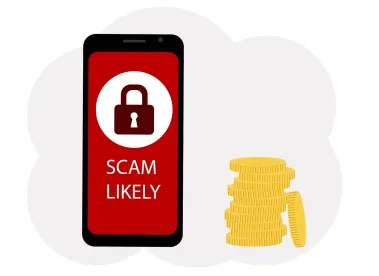The FCC recently proposed a rule that would turn the lead generation on its head. The proposed new rule goes quite a bit further than simply requiring wireless carriers to block texts from illegitimate numbers. See more, here.
In addition to carrier investigation and blocking obligations, as well as an extension of DNC protections to text messages, the FCC proposes:
“…to ban the practice of obtaining a single consumer consent as grounds for delivering calls and text messages from multiple marketers on subjects beyond the scope of the original consent.”
In an illustration of the issue, Company A describes a website that purports to enable consumers to comparison shop for insurance. The website sought consumer consent for calls and texts from insurance companies and other various entities, including Company A’s ‘partner companies.’ The ‘partner companies’ were listed in a hyperlink on the web page (i.e., they were not displayed on the website without clicking on the link) and the list of ‘partner companies’ included both insurance companies and other entities that did not appear to be related to insurance.”
Public Knowledge, an influential non-profit Washington, D.C.-based public interest group argues that lead generators and data brokers use hyperlinked lists to harvest consumer telephone numbers and consent agreements on a website and pass that information to telemarketers and scam callers. Commentors have argued that the telemarketer that obtains the consumer’s contact information from the lead generator may believe that it has the consumer’s prior express consent, but that the consumer has purportedly not consented to the particular caller or callers, which may be listed as “partner companies.”
Since the announcement of the NPRM, the FCC has sought comments on whether prior express consent to receive calls or texts must be made directly to one entity at a time. Comments on amending TCPA consent requirements to require that such consent be considered granted only to callers logically and topically associated with the website that solicits consent and whose names are clearly disclosed on the same web page.
And, the agency has sought comments regarding how it can ensure that consumers can consent to obtain further information from such websites without receiving numerous calls and texts from unrelated companies. In other words – responsible and legitimate data use – the lack of which for years has now placed the lead generation industry in peril.
The attempt to limit the sale of consents obtained is HUGE.
It is not surprising.
While perhaps capable of being distinguished from the instant context, consider the recent FCC ruling on lead generation “consent farms” to capture consent for telemarketing purposes.
The FCC’s attempt to limit telemarketing efforts to callers clearly and conspicuously disclosed to consumers, and that are related to the product/service (vertical specific) associated on the applicable website has been infinitely predictable.
The comments that were recently submitted are eye-opening.
As referenced above, the lead generation industry is now faced with the possibility that telemarketing consent would need to be directly between the seller and the consumer, with no lead generator intermediaries!
There is another submitted comment that is of concern, to wit, that the consent between a consumer and a seller, the applicable lead form must comply with the E-Sign Act in order to be considered compliant and valid. Plaintiffs’ attorneys have tried slinging that argument for years.
Specifically, the National Consumer Law Center has now commented that consumers must first provide E-Sign Act consent before the written agreement required for TCPA consent or permission is presented. It may be a bit of a stretch to interpret the E-Sign Act as requiring more than a written signature that complies with its electronic consent and permission terms.
Comments and submissions can be seen, here.
The National Consumer Law Center also argues that applicable restrictions on telemarketing and telephone solicitation expressly limit consent to a single consumer and a single seller. Query whether the NCLC’s generous interpretation of the applicable federal statute intentionally disregards that all that is expressly required is that the identity of the seller be disclosed.
The NCLC also calls attention to another federal statute pertaining to delivery restrictions. In pertinent part, this statute states that a telemarketing communication to a number on the Do-Not-Call list does not violate the Telephone Consumer Protection Act if there exists a “signed, written agreement between the consumer and the seller which states that the consumer agrees to be contacted by this seller and includes the telephone number to which the calls may be placed.” Query whether there is such an “agreement” if a third-party intermediary is involved (in the absence of “prior express written consent”).
Digital advertisers and lead generators need to take these developments seriously, including those that use warm transfers, because the Notice of Proposed Rulemaking has devastating, existential consequences for the lead generation industry if passed, as proposed.
This article should be of interest to digital advertisers, lead generators, lead purchasers, data brokers, lead aggregators, telemarketers and corporate counsel.




 />i
/>i
